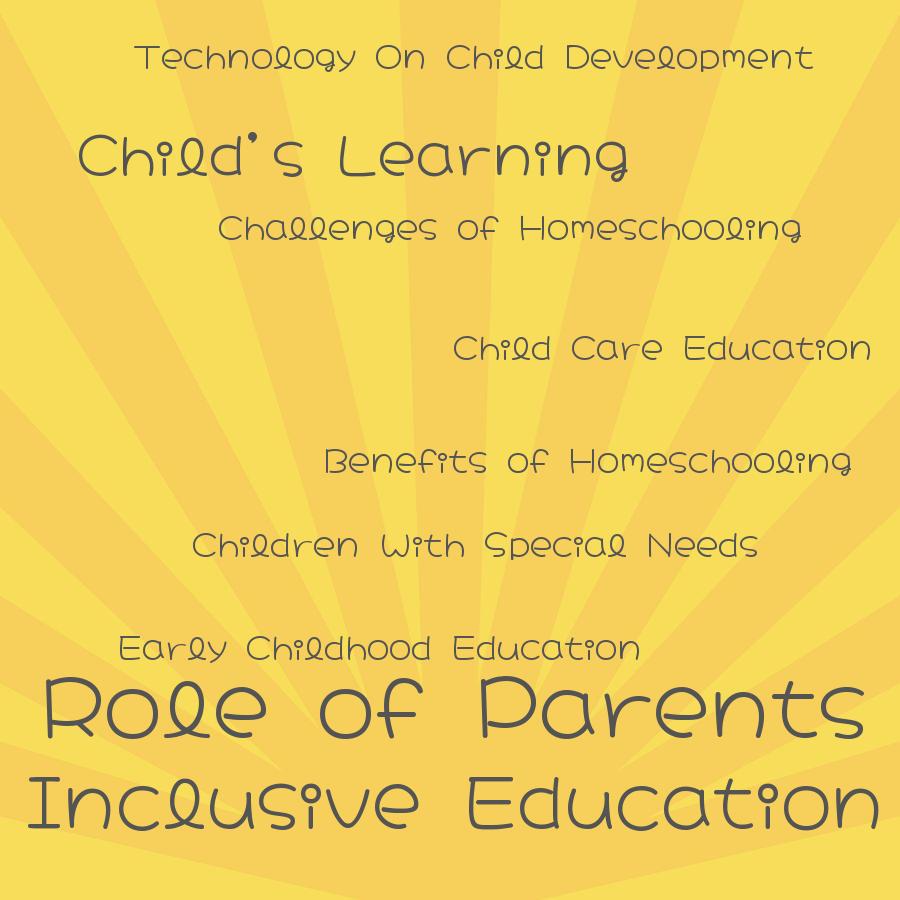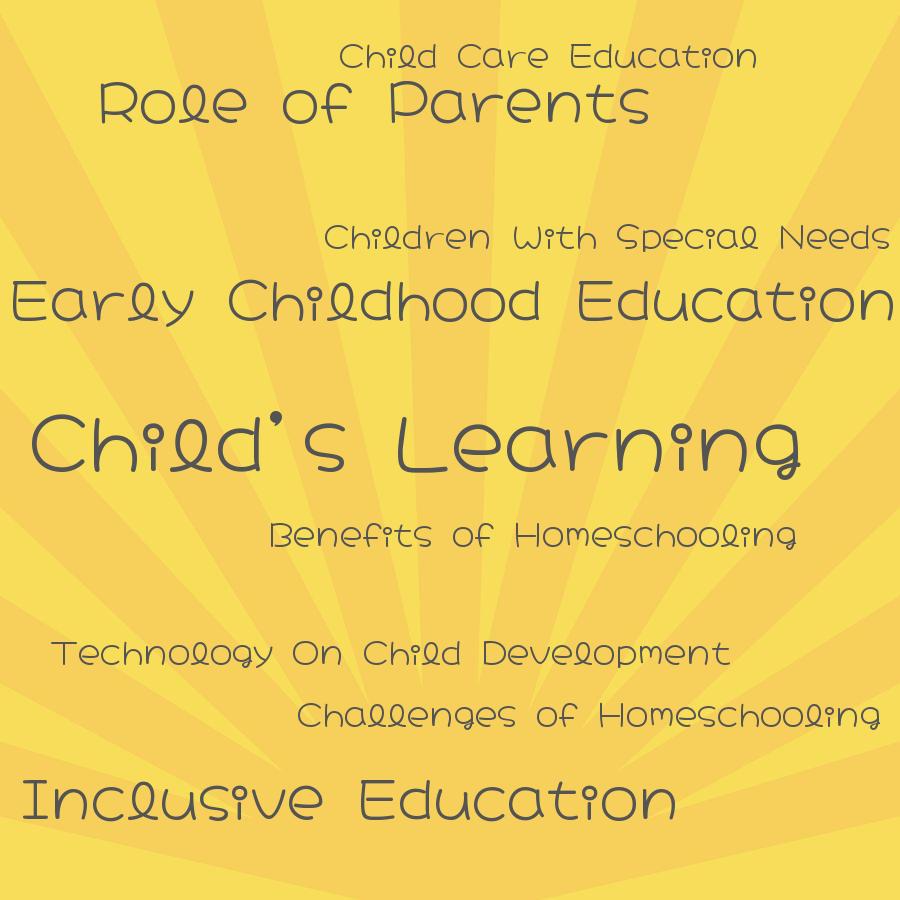Child care education and parenting have significant educational implications as they shape the development of children’s cognitive, social, and emotional skills. Effective child care education programs and parenting practices can provide children with a strong foundation for lifelong learning, while inadequate or inconsistent care can lead to negative outcomes such as developmental delays or behavior problems. Therefore, it is crucial for parents and caregivers to stay informed about best practices in child care education and parenting to ensure positive outcomes for children.
As a child, I was fascinated by the world around me. I wanted to know how things worked and why they were the way they were.
My parents encouraged my curious nature and provided me with books, toys, and experiences that helped me to learn about the world in a fun and engaging way.
Looking back on my childhood, I realize that my parents played a critical role in shaping who I am today. They instilled in me a love of learning that has stayed with me throughout my life.
As an educator and parent myself now, I understand just how important it is to provide children with quality care and education from an early age. The educational implications of child care education and parenting are vast, affecting not only individual children but also society as a whole.
In this blog post, we’ll explore some of these implications in more detail. From the benefits of early childhood education to the importance of parental involvement in their child’s learning journey – we’ll cover it all! So sit back, relax, and let’s dive into this fascinating topic together!
Here You Will Learn:
Importance of Early Childhood Education


As a blogger and educator, I have seen firsthand the impact that early childhood education can have on a child’s development. Research has shown that children who receive quality care and education in their early years are more likely to succeed academically, socially, and emotionally later in life.
Early childhood education provides children with the foundation they need to become lifelong learners. It helps them develop critical thinking skills, problem-solving abilities, creativity, and social skills.
By engaging in play-based learning activities such as storytelling or building blocks with other kids of their age group at an early age can help them learn how to communicate effectively with others.
Parents play a crucial role in ensuring their child receives quality care during these formative years by choosing reputable childcare centers or preschools for their little ones. They should also take an active interest in what is being taught at school so they can reinforce those lessons at home.
Early childhood education is essential for setting up our future generations’ success both academically as well as socially & emotionally; it lays down the foundation of lifelong learning which will benefit not only individuals but society as well!
Role of Parents in Child’s Learning
As parents, we play a crucial role in our child’s learning journey. From the moment they are born, children look to us for guidance and support as they navigate the world around them.
Our interactions with them can have a significant impact on their development and future success.
Research has shown that parental involvement in their child’s education is linked to better academic outcomes. When parents take an active interest in what their child is learning and provide support at home, it can lead to improved grades, higher test scores, and increased motivation.
But parental involvement goes beyond just helping with homework or attending parent-teacher conferences. It also involves creating a positive home environment that fosters learning through everyday activities such as reading together or engaging in educational games.
Moreover, studies suggest that when parents engage positively with teachers by communicating regularly about their child’s progress at school; it leads to better student performance overall. As we’ve seen from this brief discussion of the role of parents in a child’s education – there are many ways that we can help our children succeed academically! By taking an active interest in what they’re learning both inside and outside of school; providing support at home through reading together or playing educational games; fostering positive relationships between ourselves as caregivers/parents & educators – all these things contribute towards building strong foundations for lifelong success!
Impact of Technology On Child Development
In today’s digital age, technology has become an integral part of our lives. From smartphones to tablets and laptops, we are surrounded by screens everywhere we go.
While technology can be a useful tool for learning and entertainment, it also has its downsides when it comes to child development.
Research shows that excessive screen time can have negative effects on children’s cognitive development, language skills, attention span and social interactions. It is therefore important for parents to monitor their child’s use of technology and ensure that they are engaging in other activities such as outdoor play or reading books.
As a parent myself now, I understand the challenges of balancing screen time with other activities in my child’s life. However as an educator too I know how crucial this balance is for the overall growth & development of children.
It is essential that parents work together with educators to create a healthy environment where children can learn through play-based experiences while limiting their exposure to screens during early childhood education years. By doing so we will not only help them develop critical thinking skills but also foster creativity & imagination which will benefit them throughout their academic journey ahead!
Benefits and Challenges of Homeschooling
One of the most significant changes in child care education and parenting over the past few years has been the rise of homeschooling. Homeschooling is a form of education where parents take on the role of teacher, providing their children with an individualized curriculum tailored to their needs.
There are many benefits to homeschooling, including flexibility in scheduling and curriculum design, personalized attention from parents who know their children best, and opportunities for experiential learning outside traditional classroom settings. However, there are also challenges that come with this approach – such as ensuring socialization opportunities for homeschooled children.
As we consider these educational implications on child care education and parenting practices today – it’s important to remember that every family is unique. What works well for one family may not work at all for another.
The key takeaway here is that quality early childhood education can have a profound impact on a child’s future success – whether they’re homeschooled or attend traditional schools.
Parents play an essential role in shaping their child’s educational journey by providing them with access to high-quality resources like books or technology tools while also fostering curiosity through exploration activities such as field trips or hands-on projects at home!
Inclusive Education for Children With Special Needs
As a blogger, I believe that every child deserves access to quality education and care. This includes children with special needs who may require additional support to thrive in their learning environment.
Inclusive education is an approach that seeks to provide all children, regardless of ability or disability, with equal opportunities for learning and development.
Inclusive education involves creating a supportive environment where each child’s unique strengths and challenges are recognized and accommodated. It requires collaboration between parents, educators, therapists, and other professionals to ensure that the child’s individual needs are met.
Parents play a critical role in advocating for their child’s educational rights within the school system. They can work closely with teachers to develop Individualized Education Plans (IEPs) tailored specifically for their child’s unique abilities.
In addition to benefiting students with special needs by providing them access to quality care & education; inclusive classrooms also benefit typically developing students by promoting empathy towards others who may be different from themselves – ultimately leading towards building more compassionate communities as they grow up together!
Overall it is important we recognize the importance of inclusive practices when it comes down not only on early childhood but throughout our lives!